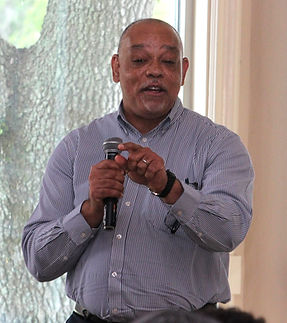
“Parents, like a lioness, must actively train, protect, and nurture their children to become the future generation of leaders. Just as the lioness intentionally prepares her cubs for adulthood, mothers and fathers should intentionally cultivate leadership qualities in their sons and daughters – rites of passage are moments that memorialize the journey of becoming.”

“The lion rules over the pride, but the lioness trains the cubs so they can survive and develop into the leaders they are destined to be. She is a fierce warrior and defender of her cubs. She protects, nurtures, and produces the next generation of leaders in the pride.” Rites of Passage - Raising Sons to be Men of Standard
Rites of Passage
Importance of Rites of Passage Ceremonies
As a society, we readily embrace ceremonies—weddings, graduations, birthdays, and memorials—because they help mark meaningful transitions in life. Yet when it comes to raising children, parents often overlook one of the most powerful tools for nurturing growth and identity: rites of passage.
In today’s fast-paced world, daily routines can become so automated that people risk drifting into a pattern of simply “going through the motions.” Without deliberate pauses to recognize transformation, we miss opportunities to instill a sense of meaning and identity in our children.
Rites of passage are intentional ceremonies that celebrate growth, maturity, and new responsibility. They help children understand who they are, where they are going, and the principles that guide them. Far more than symbolic, these moments communicate to a child: “You matter. Your growth matters. This step in your life is recognized and honored.”
As parents, our time with our children is fleeting—and precious. By pausing to mark key transitions with significance, we not only deepen our connection with them, but we also build a legacy of purpose and belonging. These ceremonies are not just about tradition; they are strategic tools in raising grounded, resilient, and self-aware young adults.
Effective parenting means intentionally investing in moments that shape identity. Rites of passage ceremonies do exactly that. They create lasting memories, foster intergenerational values, and guide our children toward becoming the men and women they are meant to be.
What Is a Rite of Passage Ceremony—And Why Does It Matter?
When Sonya set out to raise her sons to become men of integrity and purpose, she found herself facing a daunting question: “How do I raise my sons to be men?” Driven by a mother’s deep desire to instill maturity, responsibility, and identity in her children, she began to seek answers beyond conventional parenting.
She asked adult men from diverse backgrounds one simple but profound question: “When did you know you had become a man?” The responses were eye-opening. Many could not name a single moment that marked their transition into manhood. The absence of a defining milestone revealed a widespread void—too many young men are growing up without guidance, clarity, or meaningful affirmation during one of life’s most critical transitions.
This realization became a turning point for Sonya. Determined to do more than simply hope her sons would “figure it out,” she chose to act intentionally. She began with her eldest son, Elijah, creating a Rite of Passage ceremony that marked his movement into manhood. Joined by her husband and a circle of respected male leaders, she offered Elijah more than just encouragement—she gave him a moment to be seen, honored, challenged, and equipped.
Why Rites of Passage Matter
The Rite of Passage ceremony is not a secret ingredient that automatically turns boys into men. They serve as powerful anchors—ceremonial moments that define identity, highlight maturity, and call forth responsibility. These moments provide what many children are missing: clarity about who they are, what is expected of them, and how they fit into a larger society.
These ceremonies offer an intentional opportunity to speak into the lives of those we influence, impart core values, and transfer vision. It is a sacred time when transitions are celebrated and adolescence is bridged into adulthood, not passively, but with direction and affirmation.
Far from being optional, rites of passage ceremonies are critical milestones in a young person’s journey. It is a moment of divestiture for parents and leaders to impart core values and communicate standards, where the past is acknowledged and the future is embraced.
What Others Are Saying...












